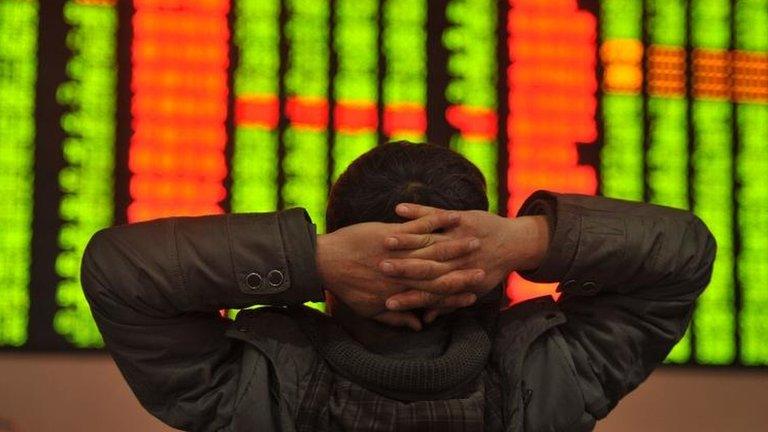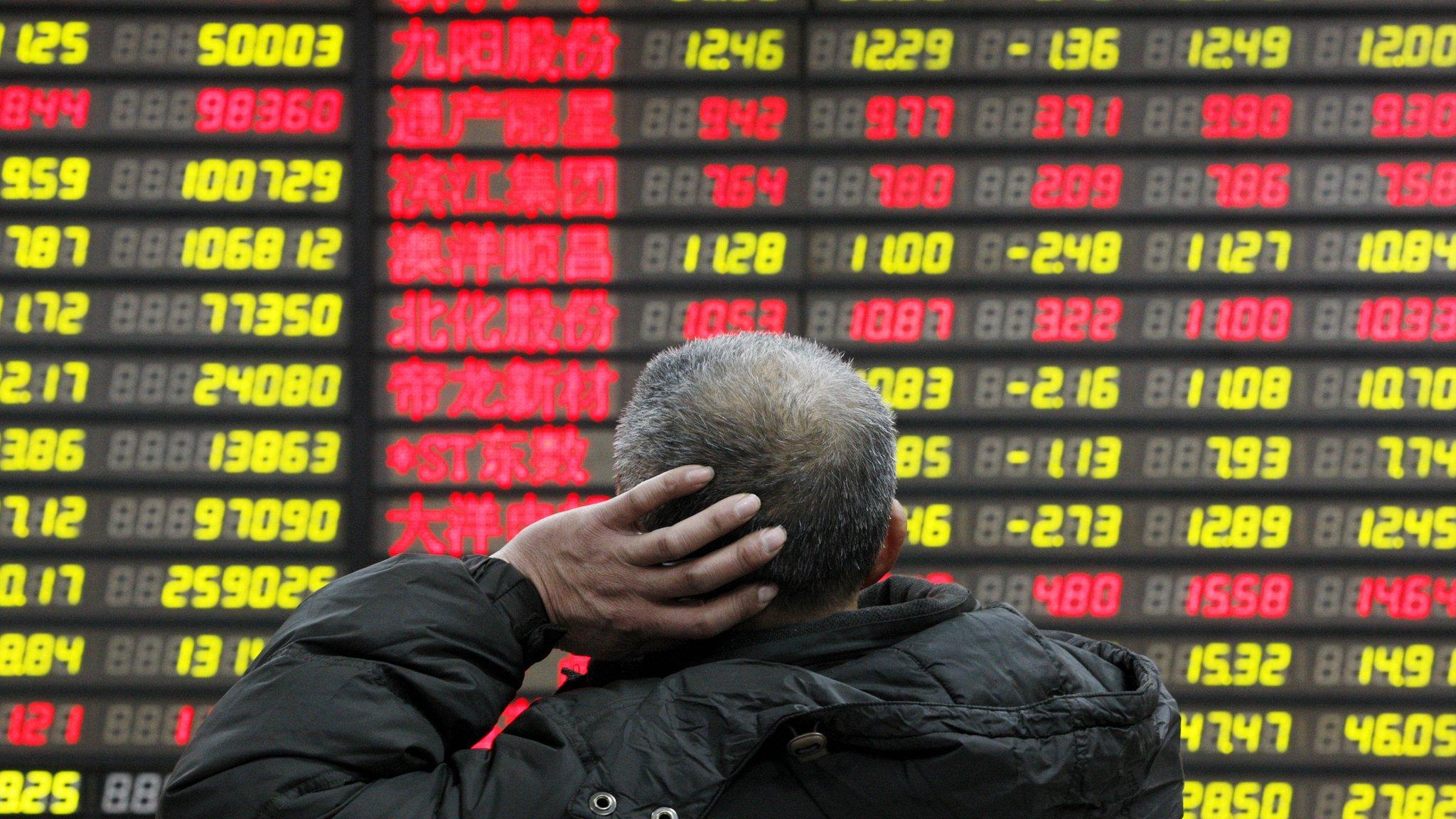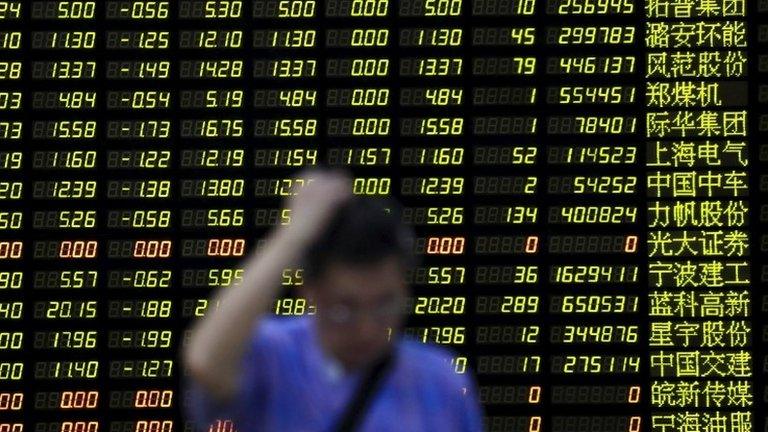Not such a happy new year
- Published
- comments

A new year usually implies a fresh start, a chance to set things right, and begin anew.
For Chinese shares though, the first trading session of 2016 has resulted in more of the same.
More panic, more pessimism and more people selling their shares because of - well frankly, other people selling their shares.
So why did Chinese shares fall by 7% today, causing trading to be halted? And what does it say about confidence in the Chinese market and more importantly - the economy?
Here are four things you should know about the stock market falls in China today:
Weaker manufacturing data
This was what most analysts said was the reason behind why shares fell. Manufacturing data contracted again - for the tenth straight month. The figures are further demonstration of the ongoing narrative about China's economy, that state led investment into manufacturing is slowing down and that the economy is transitioning into services. China releases services data on Wednesday - which should show things are improving.
Circuit breakers come into effect
This was the first day that China's new "circuit breaker" came into effect, and that's why when shares plunged by 5% trading was halted by 15 minutes. When trading resumed, and shares continued to fall by 7%, trading was suspended altogether. The measures were created last year after the stock market crash in China, but only came into effect today. Circuit breakers in themselves aren't unusual - lots of countries have them for individual stocks, or for a few minutes - but it is unusual to stop trading altogether for a share fall of 7%. An indication perhaps of just how much the authorities want to avoid another crash.
Yuan weakens again
There was a sharp depreciation in the yuan just ahead of the plunge in Chinese shares. China cut the yuan's value against the dollar, making it weaker than 6.5 for the first time in more than four-and-a-half years. There's speculation that the People's Bank of China has abandoned trying to hold the yuan up against the dollar, which means it's signalling that it won't step in to shore up the yuan. There are concerns that this indicates money is flowing out of China, and that the fall could get out of control. Some investors may be worried about what would happen if the yuan continues to weaken - and the fact that policy makers are allowing it to weaken shows they're concerned about the economy's outlook too.
People are selling because people are selling
There's nothing like the herd mentality to get things started for the new year. Retail investors in the Chinese stock market are often driven by sentiment and tend to follow the crowd. When they hear of some bad news from brokers or their friends, and other people start selling - they start selling too. Falling prices attract more people to dump their stocks, and although shares are still above their lows, authorities will be keen to avoid the kind of share market crash we saw last summer.
So what do today's falls tell you about the fate of the Chinese economy in 2016? Well, nothing you didn't know already. China is slowing down, people are nervous and that means volatile trading for the rest of the year.
Happy New Year everyone. If the first day of trading is anything to go by, it is definitely going to be an interesting one.
- Published4 January 2016

- Published22 July 2015

- Published27 August 2015
- Published7 January 2016
